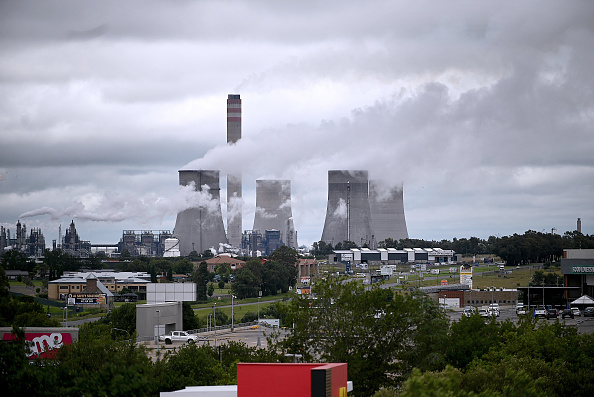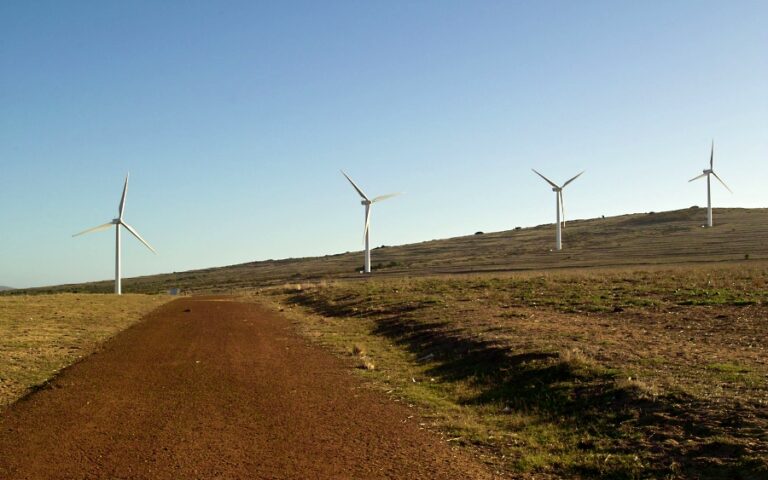This article was first published in the Daily Maverick on 23 August 2022.
Last week, Exxaro Resources presented its 2022 interim results. The company’s new CEO, Dr Nombasa Tsengwa, spoke at length about Exxaro’s growth plans for its renewable energy business. But what was not said is equally important. There was not a word about decarbonising – or running down – the company’s coal operations.
Instead, most of the presenters talked about maximising value from the company’s coal assets, and overall the tone was jubilant thanks to the announcement of an interim dividend of R15.93 per share. “The coal gods are smiling” on Exxaro, someone had said in the preceding media briefing.
But still, it is apparent that South African coal companies have stepped up their interest in renewable energy – Seriti and Thungela have also recently made announcements about their plans. How are we to understand this?
Let us be very clear on the two separate aspects of “shifting to renewables”: first, coal companies’ use of renewable energy to power their coal operations; and second, their actual decarbonisation plans.
The power that coal miners use to run their operations is currently mostly derived from electricity purchased from Eskom. Using renewable energy to power mines, production facilities, offices, etc, reduces the company’s reliance on Eskom, and reduces its scope 1 and 2 carbon emissions.
This is relatively simple and easy to commit to and achieve. Renewable energy is the cheapest source of energy and the quickest to establish. The technology needed to account for the variability of solar and wind power is advancing rapidly, and the barriers to industrial users developing their own renewable energy facilities are falling. It looks clear that SA’s coal companies are all preparing to make this shift.
However, by far the most significant type of emissions for coal miners are scope 3 emissions, which are the emissions that arise from the use of the company’s product. For example, Exxaro’s most recent scope 3 emissions were 70,931 ktCO2e (or 98% of its total emissions for that year), almost 71 times its scope 1 and 2 emissions, which together came to 995 ktCO2e. For coal companies, which produce the most carbon-intensive fossil fuel in the world, decarbonising means shifting their business altogether away from mining, producing and selling coal.
This is where it becomes more complicated and where there is significant potential for greenwashing. Most coal companies now recognise the commercial necessity to shift their business away from coal in the long term. Consequently, they are building renewable energy businesses by developing major projects or purchasing majority stakes in existing entities.
However, we should not assume that these companies are doing this as part of a science-based decarbonisation strategy. There is, in fact, no coal company in SA that has such a strategy and some, like Thungela, are even planning on opening new mines.
Despite their announcements about renewable energy plans, Seriti, Exxaro and Thungela do not have credible decarbonisation plans. It is therefore crucial not to be lulled by these announcements into believing that coal companies are willing to take the requisite action needed to reduce carbon emissions in line with climate science.
Seriti Resources’ recent purchase of a majority stake in Windlab Africa is being lauded as a shift to renewable energy. Seriti CEO Mike Teke wrote earlier this month that “Seriti began life as a coal company. Seriti is no longer a coal company. We are a diversified energy company”. In that same article he wrote that “we remain a company much of whose operational activities involve mining coal, which will remain the basis of SA’s energy baseload for some time to come. And for as long as there is value in our coal export operations they will continue.”
These and other comments, like those made by Teke at the SA coal conference in May this year, make clear Seriti’s view that coal and renewable energy will exist in parallel, but not that renewable energy means winding down coal production on a timeline aligned with climate science. It is wrong, then, to call this recent purchase a shift from coal to renewable energy.
Exxaro Resources is another example of this contradiction. It has come up with a Sustainable Growth and Impact Strategy, designed to transform Exxaro into a diversified company that will transition from a coal base to a minerals and renewable energy business, while maximising the value of its coal assets.
According to this strategy, Exxaro envisages that by 2050 its coal will be mined efficiently, and that its coal mines will be powered by renewable energy, but that the fossil fuel itself will still be sold and burned by its customers. It has no plans to wind down its coal assets on a science-based timeline. This despite purporting to acknowledge the seriousness of the climate crisis and the outsized role that coal plays in contributing to climate change.
Thungela Resources has no decarbonisation plan at all, although it announced its intention to set decarbonisation targets during the course of 2022. It is not clear how these targets will factor into the CEO’s intention to expand Thungela’s coal operations into other jurisdictions, but it is likely it will be like Exxaro: the decarbonisation strategy and targets will relate only to its operational emissions.
The installation of solar power at Thungela’s Emalahleni water reclamation plant and at Zibulo and Elders mines are in keeping with that – it is simply to provide cheaper, more reliable power to those operations. It is good news that renewable energy is becoming the clear choice for power, but it does not mean that Thungela is decarbonising its core business.
According to climate science, coal must urgently be phased out, and replaced with renewable energy. Doing so will contribute to meeting the Paris goals, increase energy access and security, reduce pollution-related health crises, and create new, clean jobs.
The economic realities mean that this shift will most likely happen eventually, but if coal companies intend to continue to extract maximum value from their coal assets for as long as they can, then it will happen too late to limit the rise of the global temperature to 1.5⁰C and avoid the worst impacts of climate change.
For investors and other stakeholders monitoring the upsurge in interest in renewables, a bit of caution is warranted. A coal company’s plan to transition its core business away from coal is fundamental to any science-based transition strategy – a shift that means more renewables, but not less coal, is not climate action.
IMAGE: 123RF / parilovv






